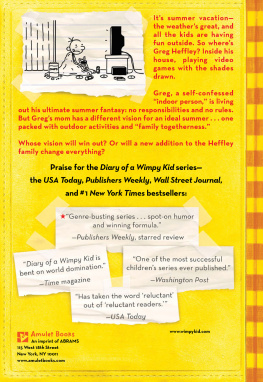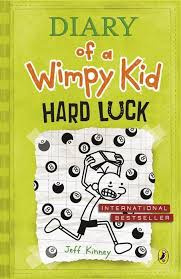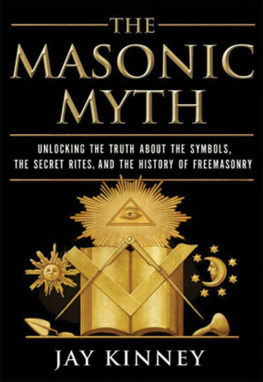Kinney - Hood
Here you can read online Kinney - Hood full text of the book (entire story) in english for free. Download pdf and epub, get meaning, cover and reviews about this ebook. City: India, year: 2018, publisher: Bloomsbury India, genre: Detective and thriller. Description of the work, (preface) as well as reviews are available. Best literature library LitArk.com created for fans of good reading and offers a wide selection of genres:
Romance novel
Science fiction
Adventure
Detective
Science
History
Home and family
Prose
Art
Politics
Computer
Non-fiction
Religion
Business
Children
Humor
Choose a favorite category and find really read worthwhile books. Enjoy immersion in the world of imagination, feel the emotions of the characters or learn something new for yourself, make an fascinating discovery.
- Book:Hood
- Author:
- Publisher:Bloomsbury India
- Genre:
- Year:2018
- City:India
- Rating:3 / 5
- Favourites:Add to favourites
- Your mark:
- 60
- 1
- 2
- 3
- 4
- 5
Hood: summary, description and annotation
We offer to read an annotation, description, summary or preface (depends on what the author of the book "Hood" wrote himself). If you haven't found the necessary information about the book — write in the comments, we will try to find it.
Kinney: author's other books
Who wrote Hood? Find out the surname, the name of the author of the book and a list of all author's works by series.
Hood — read online for free the complete book (whole text) full work
Below is the text of the book, divided by pages. System saving the place of the last page read, allows you to conveniently read the book "Hood" online for free, without having to search again every time where you left off. Put a bookmark, and you can go to the page where you finished reading at any time.
Font size:
Interval:
Bookmark:
The Object Lessons series achieves something very close to magic: the books take ordinaryeven banalobjects and animate them with a rich history of invention, political struggle, science, and popular mythology. Filled with fascinating details and conveyed in sharp, accessible prose, the books make the everyday world come to life. Be warned: once youve read a few of these, youll start walking around your house, picking up random objects, and musing aloud: I wonder what the story is behind this thing?
Steven Johnson , author of Where Good Ideas Come From and How We Got to Now
In 1957 the French critic and semiotician Roland Barthes published Mythologies , a groundbreaking series of essays in which he analysed the popular culture of his day, from laundry detergent to the face of Greta Garbo, professional wrestling to the Citron DS. This series of short books, Object Lessons, continues the tradition.
Melissa Harrison , Financial Times
PRAISE FOR HOTEL BY JOANNA WALSH:
A slim, sharp meditation on hotels and desire.... Walsh invokes everyone from Freud to Forster to Mae West to the Marx Brothers. Shes funny throughout, even as she documents the dissolution of her marriage and the peculiar brand of alienation on offer in lavish places.
Dan Piepenbring , The Paris Review
Evocative ... Walshs strange, probing book is all the more affecting for eschewing easy resolution.
Publishers Weekly
Walshs writing has intellectual rigour and bags of formal bravery ... Hotel is a boldly intellectual work that repays careful reading. Its semiotic wordplay, circling prose and experimental form may prove a refined taste, but in its deft delineation of a complex modern phenomenonand, perhaps, a modern malaiseits a great success.
Melissa Harrison , Financial Times
Walsh has been praised to the skies by Chris Kraus and Jeff Vandermeer, and it isnt hard to see why. Her writing sways between the tense and the absurd, as if its hovering between this world and another.
Jonathan Sturgeon , Flavorwire
PRAISE FOR DRONE BY ADAM ROTHSTEIN:
Adam Rothsteins primer on drones covers (such themes as) the representation of drones in science fiction and popular culture. The technological aspects are covered in detail, and there is interesting discussion of the way in which our understanding of technology is grounded in historical narratives. As Rothstein writes, the attempt to draw a boundary between one technology and another often ignores the fact that new technologies are not quite as new as we think.
Christopher Coker , Times Literary Supplement

A book series about the hidden lives of ordinary things.
Series Editors:
Ian Bogost and Christopher Schaberg
Advisory Board:
Sara Ahmed, Jane Bennett, Jeffrey Jerome Cohen, Johanna Drucker, Raiford Guins, Graham Harman, rene hoogland, Pam Houston, Eileen Joy, Douglas Kahn, Daniel Miller, Esther Milne, Timothy Morton, Kathleen Stewart, Nigel Thrift, Rob Walker, Michele White.
In association with

BOOKS IN THE SERIES
Remote Control by Caetlin Benson-Allott
Golf Ball by Harry Brown
Drivers License by Meredith Castile
Drone by Adam Rothstein
Silence by John Biguenet
Glass by John Garrison
Phone Booth by Ariana Kelly
Refrigerator by Jonathan Rees
Waste by Brian Thill
Hotel by Joanna Walsh
Hood by Alison Kinney
Dust by Michael Marder
Shipping Container by Craig Martin
Cigarette Lighter by Jack Pendarvis
Bookshelf by Lydia Pyne
Tree by Matthew Battles (forthcoming)
Bread by Scott Cutler Shershow (forthcoming)
Hair by Scott Lowe (forthcoming)
Password by Martin Paul Eve (forthcoming)
Eye Chart by William Germano (forthcoming)
Questionnaire by Evan Kindley (forthcoming)
Shopping Mall by Matthew Newton (forthcoming)
Blanket by Kara Thompson (forthcoming)
Doorknob by Thomas Mical (forthcoming)
Sock by Kim Adrian (forthcoming)
hood
ALISON KINNEY
Bloomsbury Academic
An imprint of Bloomsbury Publishing Inc

On March 28, 2012, US Representative Bobby L. Rush spoke on the floor of the House. Removing his jacket and pulling up the hood of his gray sweatshirt, he said, Racial profiling has to stop, Mr. Speaker. Just because someone wears a hoodie, does not make them a hoodlum.... Just because someone is a young Black male and wears a hoodie does not make them a hoodlum.... I applaud the young people across this nation who are making a statement about hoodies and the real hoodlums, particularly those who tread on our laws wearing official or quasi-official cloaks.
Representative Gregg Harper said, Members need to remove their hoods or leave the floor. The sergeant-at-arms escorted Representative Rush from the chamber.
CONTENTS
The Grim Reaper. The executioner and the executed.
Two murals. The Ku Klux Klan. Lynching. The Spanish Inquisition. A timeline of hooding. Abu Ghraib.
Our bodies, our hoods. The Seattle WTO protests. Black blocs and pink blocs.
Everybodys hoods. Anti-hoodie initiatives. Black Lives Matter.
Ive long believed that the content of fashion does not materialize spontaneously but, in ways both mysterious and uncanny, emerges from the fabric of the times. That fabric has recently been darkly threaded by war and uncertainty.
ANNA WINTOUR,
Editor-In-Chief of American Vogue
We all wear hoods: judges, athletes, rappers, torturers, politicians, and toddlers. We don hoods to attend school, commute to the construction site or office, go to war or protests, take a hike, walk the dog, ride the Maid of the Mist, or visit our grannies in the woods. We dress babies in animal-eared hooded onesies to enhance their resemblances to other species (and, if were Anne Geddes, to conquer the world); we zip kids into hooded snowsuits to induce them, infallibly, to pee. Coaches, firefighters, fishers, boxers, beekeepers, and Mark Zuckerberg wear hoods professionally. Skaters, cosplayers, fetishists, presidents, and the entire Knowles-Carter family wear them to play.
Its very simple: everybody with style, everybody venturing out into the rain, everybody not completely resistant to one of the worlds most practical, ubiquitous garments of the past couple millennia wears hoods.
The hoods in this book come in wool, polyester, leather, cotton, pasteboard, hide, palm leaves, and plastic. Their designs range from garments wed all agree were hoods, to objects that stretch the definition, objects we wouldnt call hoods in other contexts. Anne Boleyns round headdress was a French hood; the Queen of Heartss pointed headdress was an English hood. Professors in formal academic dress sling gabardine and silk hoods around their necks. At Abu Ghraib, plastic sandbags and womens panties served as hoods. Languages, cultures, practices, several continents, and thousands of years of style mean that, for the purposes of this book, if people are wearing them and can agree that theyre hoods, theyre hoods. (Sorry, but youll have to wait for the sequel to get car hoods, stove hoods, and Mount Hood.)
We all wear hoods. In the second century, there lived a man named Docilianus, who loved his hood until he suffered a changing-room mishap at the spas in Roman Bath. He lodged a complaint, inscribed in a lead tablet, for management and for all posterity: I curse him who has stolen my hooded cloak, whether man or woman, whether slave
Next pageFont size:
Interval:
Bookmark:
Similar books «Hood»
Look at similar books to Hood. We have selected literature similar in name and meaning in the hope of providing readers with more options to find new, interesting, not yet read works.
Discussion, reviews of the book Hood and just readers' own opinions. Leave your comments, write what you think about the work, its meaning or the main characters. Specify what exactly you liked and what you didn't like, and why you think so.
















